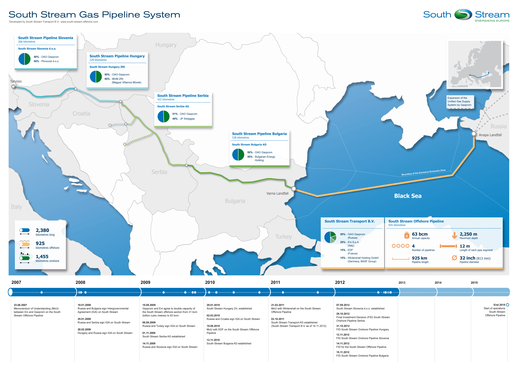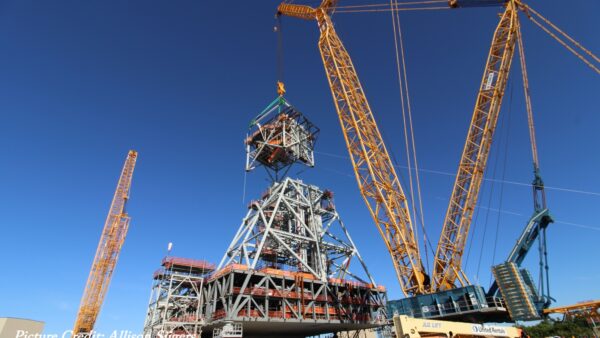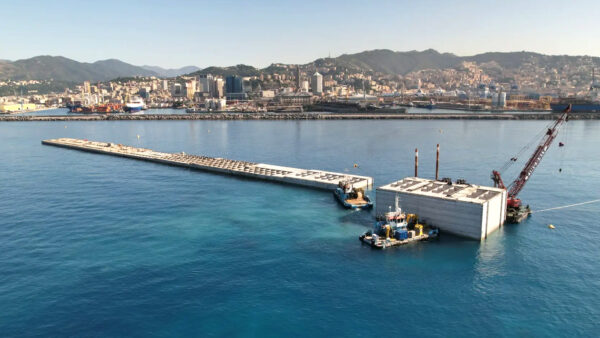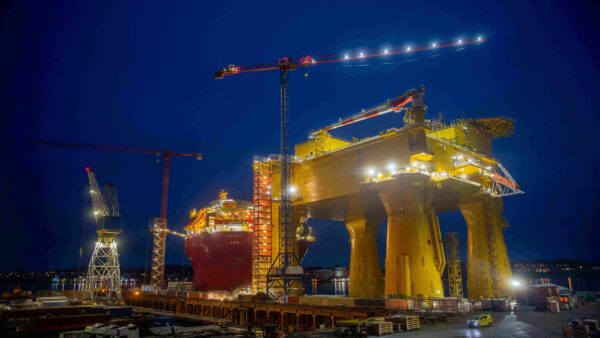7 May 2014
The EU has said it will now take a harder line on Russia’s plans to build a major gas pipeline to Europe after its actions in Ukraine.
Russia had been negotiating for a relaxation of EU competition rules that would exempt Gazprom’s planned South Stream pipeline from being used by other gas suppliers.
We are extremely concerned by the energy security implications of developments in Ukraine, as a consequence of Russia’s violation of Ukraine’s sovereignty and territorial integrity– Statement calling for emergency plans to strengthen energy security
But this week Günther Oettinger, the EU’s energy commissioner, said he was not minded to relax the rules after events in Crimea and eastern Ukraine.
“These days, with Ukraine, we are more and more defensive related to Russian pipelines than one year ago,” he said in an interview with the Financial Times. He added: “These days, exemptions are not my priority for Gazprom.”
The ambitious South Stream pipeline is planned to run from Russia 925km under the Black Sea (in Turkish waters, to avoid Ukrainian territory) and then through Bulgaria, Serbia and Hungary. Branches have been proposed to northern Italy, Austria and Germany.
Russia’s Gazprom has a 50% interest in the pipeline, which will be 2,380km long in total and is estimated to cost up to $22bn (€16bn). Italian energy firm Eni has a 20% interest, while France’s EDF and Germany’s Wintershall Holding each have a 15% stake.

A version of the proposed pipeline route (South Stream Transport BV)
EU competition laws – called the “third energy package” – seek to prevent energy monopolies and would oblige Gazprom to let other gas suppliers use the South Stream pipeline – possibly limiting Gazprom’s use to just 50%.
Russia says this hurts the business case for the pipeline and last week launched a challenge against the EU competition rules with the World Trade Organisation.
Günther Oettinger, however, said the EU wouldn’t bend. “It is not realistic to expect that we change these rules in the next days or the next years,” he told the Financial Times.
The newspaper reported that before Russia’s annexation of Crimea in March, the EU had been close to agreeing exemptions to its rules for a branch pipeline to Germany.
Meanwhile, energy ministers from the G7 group of countries, plus Günther Oettinger for the EU, have warned Russia not to use energy supply for political coercion.
Yesterday they issued a joint statement calling for emergency plans to strengthen energy security ahead of the coming winter as a response to Russia’s actions in Ukraine.
“We are extremely concerned by the energy security implications of developments in Ukraine, as a consequence of Russia’s violation of Ukraine’s sovereignty and territorial integrity,” the statement said.
The statement said energy security is build on a number of principles, with the first listed being the “development of flexible, transparent and competitive energy markets, including gas markets”.






